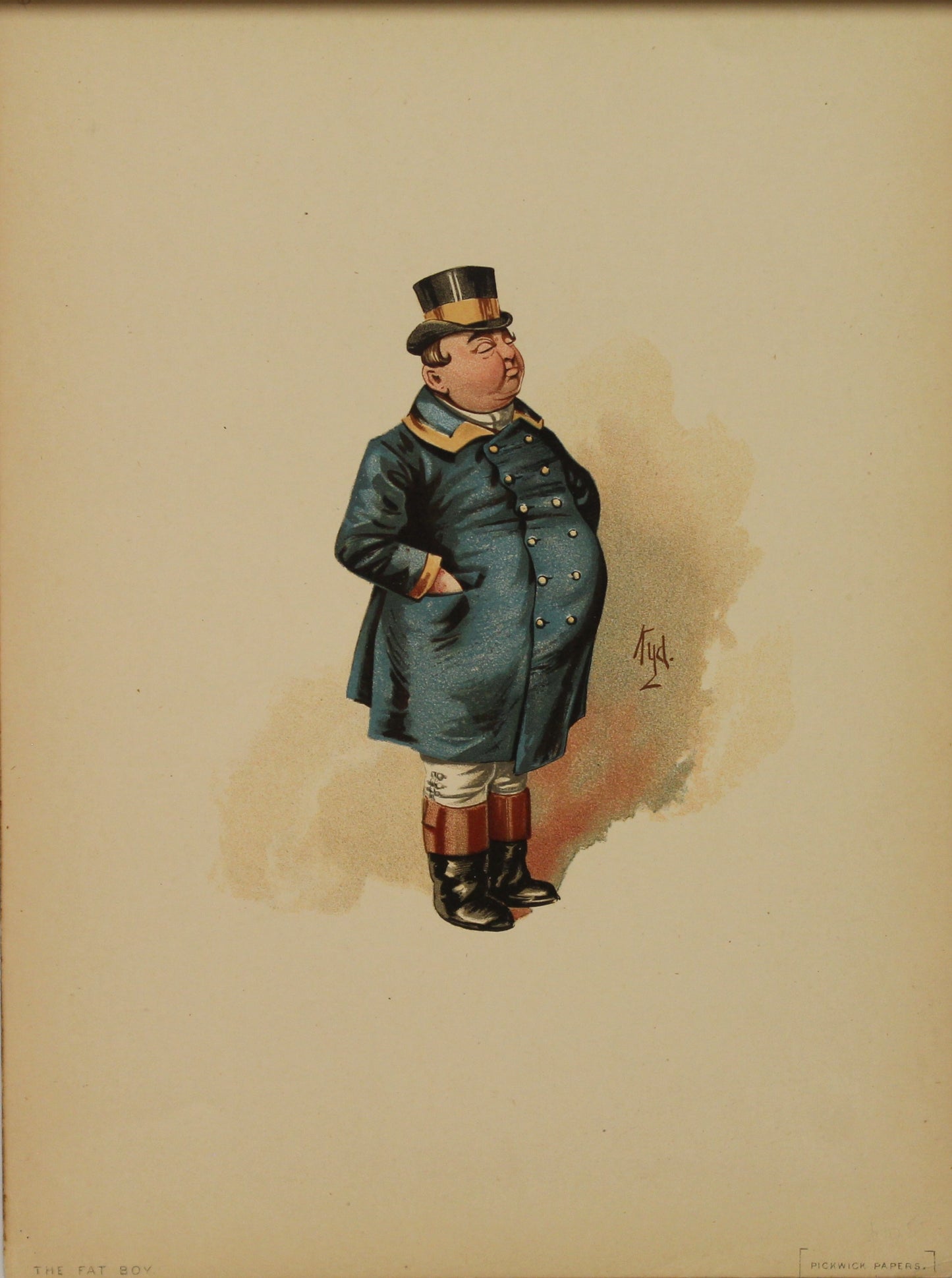Antiquarian Print Shop
Storytime, Dickens Charles, The Fat Boy, Pickwick Papers, Kyd, Clarke Joseph Clayton, 1837 -1839
Storytime, Dickens Charles, The Fat Boy, Pickwick Papers, Kyd, Clarke Joseph Clayton, 1837 -1839
Couldn't load pickup availability
Date: 1837-1839
Artist: Clarke, Joseph Clayton
Author: Dickens Charles
Novel: Pickwick Papers
Paper Size: 185 x 253
Condition: very good
Price: $80
Description: Beautiful original chromolithograph
Provenance:
This print comes from a series of Character sketches from Charles Dickens novels, Portrayed by Kyd in a series of watercolor sketches.
Posthumous Papers of the Pickwick Club (also known as The Pickwick Papers) was Charles Dickens's first novel. Because of his success with Sketches by Boz published in 1836 Dickens was asked by the publisher Chapman & Hall to supply descriptions to explain a series of comic "cockney sporting plates" by illustrator Robert Seymour,[1] and to connect them into a novel. The book became Britain's first real publishing phenomenon, with bootleg copies, theatrical performances, Sam Weller joke books, and other merchandise. Published in 19 issues over 20 months, the success of The Pickwick Papers popularised serialised fiction and cliffhanger endings.[2]
Joe- The Fat Boy
Biography
[Kyd] Joseph Clayton Clarke (1856-1937)
Clarke worked under the pseudonym “Kyd”, he was a British artist best known for his illustrations of characters from the novels of Charles Dickens.
Born in Onchan on the Isle of Man, the son of Lauris and Eliza Clark, Clarke had many occupations during his lifetime, including designer of cigarette cards and postcards, and as a fore-edge painter principally specializing in characters from the works of Charles Dickens. He worked for Punch for only one day and then as a freelance artist until 1900.”As a character ‘Kyd’ emulated those of Dickens and his own illustrations – slightly larger than life. In his style and dress he was mildly flamboyant for the period. He seldom varied his attire from a grey suit, spats, homburg hat, gloves and was never without a carnation or substitute flower in his button hole.”
Around 1892, Clarke moved with his family to Chichester in West Sussex.
Share


